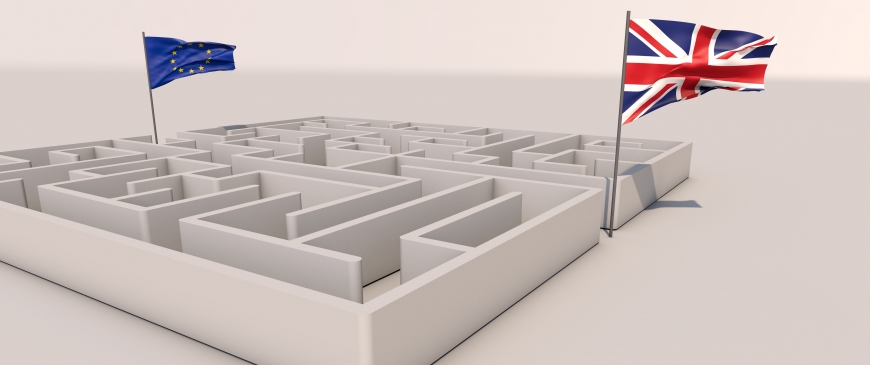
EU sticking to tried and tested approach to Brexit talks
Boris Johnson, fresh from a resounding election victory, is determined to avoid extending the post-Brexit transition period and agree a new partnership with the European Union by the end of the year. The number of contentious issues that will need to be agreed to avoid what some are calling no deal 2.0, including trade and security arrangements, means this is a highly ambitious goal, to say the least.
While Johnson was on the campaign trail, the EU’s institutions were busy establishing negotiating structures so the bloc could hit the ground running if he won the election. Rather than trying to reinvent the wheel, European Commission President, Ursula von der Leyen, decided to keep Michel Barnier as the EU’s chief negotiator for the future relationship talks. As I explain in a recent research paper published by the Centre for European Reform, preserving the greatest possible continuity in staffing and structures with the Article 50 negotiations will make it easier for the EU to achieve its objectives given the short time frame.
The EU has responded to Johnson’s refusal to extend the transition by saying it will need to prioritise and focus the talks on areas where it believes no deal would have the biggest impact on both sides. The structure of the EU’s Task Force for Relations with the UK, and recent comments by Barnier, suggest trade and security are priorities. Barnier will tackle these key areas with support from Trade Commissioner Phil Hogan, Brexit old hand Sabine Weyand, the director general for trade, Ylva Johansson, the European Commissioner in charge of Home Affairs and internal security, EU High Representative Josep Borrell, and Helga Schmid, the Secretary General of the European External Action Service. Barnier’s task force will also focus on implementing the withdrawal agreement (including preparing the EU’s position for meetings of a joint committee to oversee the application of the deal and any related disputes) and ensuring the EU is prepared for a no-deal scenario.
Like the Commission, the Council will also most likely stick to the organisation model it used during the divorce talks. Although the legal basis for negotiations with third countries differs from the one used in the divorce talks, the European leaders agreed in December that the General Affairs Council (GAC) will remain in charge of co-ordinating the Council’s position with the Commission. It will be assisted by a dedicated group which will most probably resemble the Ad hoc working party on Article 50 that was led by Didier Seeuws, the former chief of staff, or chef de cabinet, of then Council President Herman Van Rompuy. Member-states want this model to be retained, for this year at least, provided Seeuws, with his ability to reconcile differences between the 27 and the Commission, remains chair.
Members of the European Parliament, who will need to approve the partnership, could also be as useful to the Commission in the future relationship negotiations as they were in the withdrawal stage. Although the parliament has become more fragmented after the May election, pro-European groups will continue to insist on a robust defence of the EU’s interests in the second phase. Their input will allow Barnier to use the threat of a European Parliament veto to his advantage again. The tight time frame, as well as Johnson’s comments about the UK diverging from EU rules after Brexit, suggests the future relationship talks will, at best, produce a bare bones free trade agreement.
Although a narrow agreement suggests there is less room for disagreements to grow among the 27, they cannot be ruled out. In the previous phase Poland’s drive to allow road freight between the EU and UK to continue without disruption temporarily in the case of a no-deal exit was initially opposed by Germany, which is a transit country for Polish trucks. But, with the help of Seeuws, a compromise was found. It stands to reason that it will be easier for the EU to reconcile any disagreements about the future relationship with the UK if it sticks to the now familiar negotiating structures and their experienced personnel.
The EU will also benefit from maintaining its ‘full transparency policy’, whereby the Commission publishes all its negotiating documents and regularly exchanges views with the 27 EU governments, national parliaments and other stakeholders. In the Article 50 talks, the EU’s willingness to set out its objectives publicly gave the impression it was setting the agenda and kept the UK on the defensive. Continuing this approach will also make it harder for the UK to seek side deals with individual member-states or blame the EU for failure of the talks.
Agata Gostyńska-Jakubowska is a senior research fellow at the Centre for European Reform.
